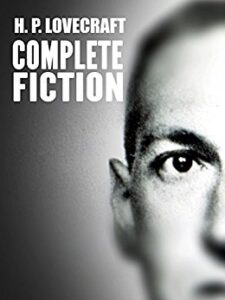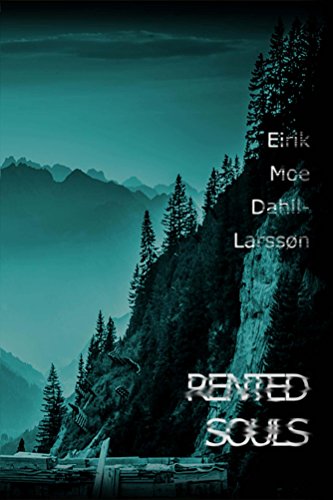Rented Souls received a 4+ star review, making it an IndieReader Approved title.
Following find an interview with author Eirik Moe Dahll-Larssøn.
What is the name of the book and when was it published?
The book’s name is Rented Souls, and it was published in November, 2016.
What’s the book’s first line?
“I joined the UCIA about… Shit, I don’t know.” I feel like that’s fairly descriptive of the book as a whole, really.
What’s the book about? Give us the “pitch”.
The book is about an ordinary (maybe too ordinary) man named Dwarf, who gets involved with an agency that fights off threats from the supernatural realm known as the Ether. It’s a horror-comedy, primarily about the weird and wonderful people who work for the agency, the absurd monsters and worlds of the Ether, and the way Dwarf does – or doesn’t – fit in with them. Our cast of characters also includes a perpetually shirtless man with parachute pants and a mullet, inspired by the eminent Patrick Swayze film Road House. And 80s culture in general, in a lot of ways. His name is Swayze, shockingly. There’s also a bigger-than-life threat to all the worlds we know of, including our own, pulling strings from the shadows. But that’s not as important as the mullet, obviously.
What inspired you to write the book? A particular person? An event?
Years ago now, me and a close friend of mine had a conversation about the TV show Supernatural. We liked the idea of the show – and I remained a fan of it until season 5 ended and it started really treading water – but I always felt it would be more interesting if the heroes of the show were just two random dudes, without any particular qualifications or innate importance, trying to take on the apocalypse. That’s where the idea came from, really; that conversation, and our own dynamic. I wrote a novella based on that conversation called The Dwarf and the Swayze, which was a really absurd piece of fiction, even by my standards. Then, two years ago or so, after finishing my first published novel (In the Seraphim City) and looking for my next major project, I picked up the old novella and thought; ‘What the hell – this could be pretty great. And weird.’ So I sat down and planned the first book out, as well as outlining an overarching story, stretching across four books. I’m really happy with how it turned out.
What’s the main reason someone should really read this book?
It’s unique, really. It has hints of John Dies at the End by David Wong, and of Supernatural (obviously), but as a whole I can’t think of anything that’s quite like it. I’ve put a lot of effort into making the humor less random and more deliberate; jokes, funny events or observations that flow from the story and the characters, rather than just putting some amusing imagery or a crude joke in there just for the sake of it. Everything should be in service of story, world, or character, and that’s the core of the novel – to be funny, to be weird, but to be consistent and honest in doing so. And I feel I struck a very good balance between those things; that they came together well, and made for a unique, interesting, and funny read.
What’s the most distinctive thing about the main character? Who-real or fictional-would you say the character reminds you of?
Dwarf is kind of an asshole. I mean, he’s an asshole with a good heart, but he’s fond of sarcasm, and tends to use it a lot to avoid facing things head-on. Which tends to fly a bit in the face of more serious-minded characters. He’s a lot like me, or me as I wish I could be, I suppose; quick-witted in some ways, slow in others, but ultimately a good guy with a genuine desire to help. He’s made all the more distinctive by the people around him though, most of whom are fairly severe. The world is ending, after all – it’s hardly the time for jokes. Except, really, there’s no better time to be joking, in Dwarf’s opinion. Even if that tends to piss off the monstrous things trying to threaten him.
When did you first decide to become an author?
I’ve always loved telling stories, ever since I was very little. I’d put together long, drawn-out story arcs for my Power Rangers action figures at age six, seven, which played out (very dramatically) across weeks, for as long as I could remember. I started drawing comics when I was about eight years old, and kept doing that until I was sixteen or so. But I do remember fairly clearly, one summer day – I think I was about ten – coming up to my mom and announcing that I was going to be a writer. I’d just written a whole page of text, all about an elementary school kid (two guesses who he was supposed to be – it’s like real-life foreshadowing for Dwarf) who falls into a secret underground chamber, where an evil genie has been hoarding treasure for hundreds of years. It was dumb, but it was mine. And for a ten-year-old kid, knowing that you actually created a thing not entirely unlike those books you read in bed every night, well, it was something special.
Is this the first you’ve written?
I’ve written seven or eight books by now, but only two that I felt were worth publishing (and some that are still in the editing phase, and will be for some time – including a trilogy of fantasy-novels that total about two thousand pages). In addition to that, I’ve written countless short stories and analyses of other books, as well as critiques and analyses of films and video games. I’ve also dabbled in literary/narrative theory. Some of it can be found on my Facebook-page, some on my Patreon (most are behind the 1$ reward, but I tend to make some of the older ones available for free after a time – and I really don’t mean this to come off as an ad, I swear!).
How much time do you generally spend on your writing?
Most of my time, really. I work on my novel-writing anywhere from four to eight hours a day (I tend to work very intensely, so I will wear myself out quickly if I’m not careful). I never entirely manage to turn off either, so even if I’m relaxing at night with a video game or a dumb TV show, I’m always thinking of a future novel, or a past novel, or annoying my girlfriend by telling her how this dumb TV show could probably better, or poking holes at her favorite films or books. It’s a compulsion, really. But I also know that so-called ‘bad’ fiction is a good place to look for inspiration, because it’s easy to learn from it. So, I’ll frequently search for films or books that have a less-than-stellar reception (bad horror movies are a particularly fun place to go), for the sake of maybe finding a good idea buried in a bad production, or genuine heart and passion put into a product that was clearly mangled by an editor or a producer. It’s so much more interesting and giving to see a perfect train wreck than it is to watch something just… perfectly acceptable. So yeah – I’d say I spend pretty much all the time I’m not sleeping working on something writing-related.
What’s the best and the hardest part of being an indie?
To start with the hardest – in a word; sales. It’s incredibly hard to make a living when you’re more or less on your own, and you have to spend your own time and money on reviews, on publicity, on advertising… you name it, it’s all on me. I’ve never wanted to be anything other than a writer, so I’m stubborn enough to do all these things, but it can be incredibly discouraging to see a novel I’ve spent years of my life working on sell no more than maybe a few hundred copies.
The best part, though, is the freedom to do exactly what I want with my fiction. I mentioned earlier that I’m much more interested in an amazing train wreck than in something that’s just okay, and I’m so incredibly happy that I have the freedom to create things anywhere from spectacularly good to ungodly awful, rather than have everything I do be polished down to an uninspired stump.
I think, as an industry in trouble, traditional publishing is absolutely going to have to bet on indie authors if they want to stay relevant – and they can’t just sell repackaged fan fiction forever. Eventually, you’re going to have to go with the weird, with the off-putting and the experimental. You’re going to have to see what books can do that other kinds of fiction can’t, and then put your money there. There are plenty of books written that could never be movies – books that are too weird, too mired in language and the written word, to translate to film. You’ll get a few absolute stinkers from that well, obviously – but it’s better to risk those stinkers than continually publish very traditionally-minded books that have as much creative spark as a piece of cardboard. And that’s the best part of being independent – I’m allowed to get weird. That I can experiment, try things out just to see what works and what might not, and then learn from that process.

It’s difficult to say, but I think I’ll have to go with H.P. Lovecraft. The man spent most of his career in middling renown, and with little in the way of critical recognition, but he kept writing what he wanted to write. And now, of course, he’s generally credited with creating – or at least codifying – the Cosmic Horror genre, which is a personal favorite of mine. This being the early 20th century, of course, the guy was definitely severely racist – and that’s definitely not the part I admire – but reading his later stuff is illuminating in that he became less of a racist the older he got. He actually got around to changing his mind somewhat. If he’d lived to be older than forty-six, who knows how he might have changed? Regardless – the mark he left on fiction, horror fiction in particular, is undeniable. And for that he deserves some measure of respect – and I can’t help but admire him for sticking to what he wanted to write, despite commercial failings.
Which book do you wish you could have written?
It’s very hard to say, but I think I’ll have to say City of Saints and Madmen by Jeff VanderMeer. The book isn’t perfect, but it’s such a perfect example of a thing that could never, ever be done in any other medium. A video game would be the closest thing you could come to an adaptation, but even that would have to be neutered pretty severely. It is such an odd novel – essentially a collection of short stories, only related in that they take place in the city of Ambergris (which is such an absurd place, I can’t help but love it), that both explore the history of the place, the culture, and the eccentric people that live there. It’s genuinely heartfelt and beautiful, too; managing to balance the completely unknowable with some heartfelt core that manages to resonate, despite the odd trappings. It takes some effort, but if you haven’t read it, I’d definitely recommend you give it a try.

